
Yijie (Lina) Mao is an Assistant Professor at the School of Information Science and Technology, ShanghaiTech University, Shanghai, China. She received the B.Eng. degree from the Beijing University of Posts and Telecommunications, and the B.Eng. (Hons.) degree from the Queen Mary University of London (London, United Kingdom) in 2014. She received the Ph.D. degree in the Electrical and Electronic Engineering Department from the University of Hong Kong (Hong Kong, China) in 2018. She was a Postdoctoral Research Fellow at the University of Hong Kong (Hong Kong, China) from Oct. 2018 to Jul. 2019 and a postdoctoral research associate with the Communications and Signal Processing Group (CSP), Department of the Electrical and Electronic Engineering at the Imperial College London (London, United Kingdom) from Aug. 2019 to Jul. 2021. Her research interests include the design of future wireless communications and artificial intelligence-empowered wireless networks. She is a senior member of China Institute of Communications.
Dr. Mao receives the Best Paper Award of EURASIP Journal on Wireless Communications and Networking 2022 and the Exemplary Reviewer for IEEE Transactions on Communications 2021. She is currently serving as a guest editor for special issues of IEEE Journal on Selected Areas in Communications and IEEE Open Journal of the Communications Society. She has been a workshop co-chair for 2020-2022 IEEE ICC, 2021-2022 IEEE WCNC, and 2020 IEEE PIMRC, and she has been a Technical Program Committee (TPC) member of many symposia on wireless communication for several leading international IEEE conferences.
-
Name:Yijie (Lina) MaoPosition:Assistant ProfessorDuration:Email:maoyj@shanghaitech.edu.cn
-
Name:Xiaohua ZhouPosition:Doctor StudentDuration:2021 classEmail:zhouxh3@shanghaitech.edu.cn
-
Name:Kangchun ZhaoPosition:Master StudentDuration:2022 classEmail:zhaokch12022@shanghaitech.edu.cn
-
Name:Yiwen WangPosition:Master StudentDuration:2022 classEmail:wangyw22022@shanghaitech.edu.cn
-
Name:Facheng LuoPosition:Master StudentDuration:2022 classEmail:luofch2022@shanghaitech.edu.cn
-
Name:Kexin ChenPosition:Master StudentDuration:2023 classEmail:chenkx2023@shanghaitech.edu.cn
-
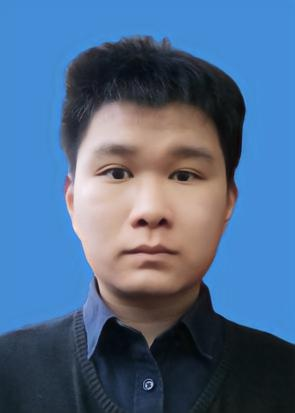 Name:Zhengqing QiuPosition:Master studentDuration:2023 classEmail:qiuzhq2023@shanghaitech.edu.cn
Name:Zhengqing QiuPosition:Master studentDuration:2023 classEmail:qiuzhq2023@shanghaitech.edu.cn -
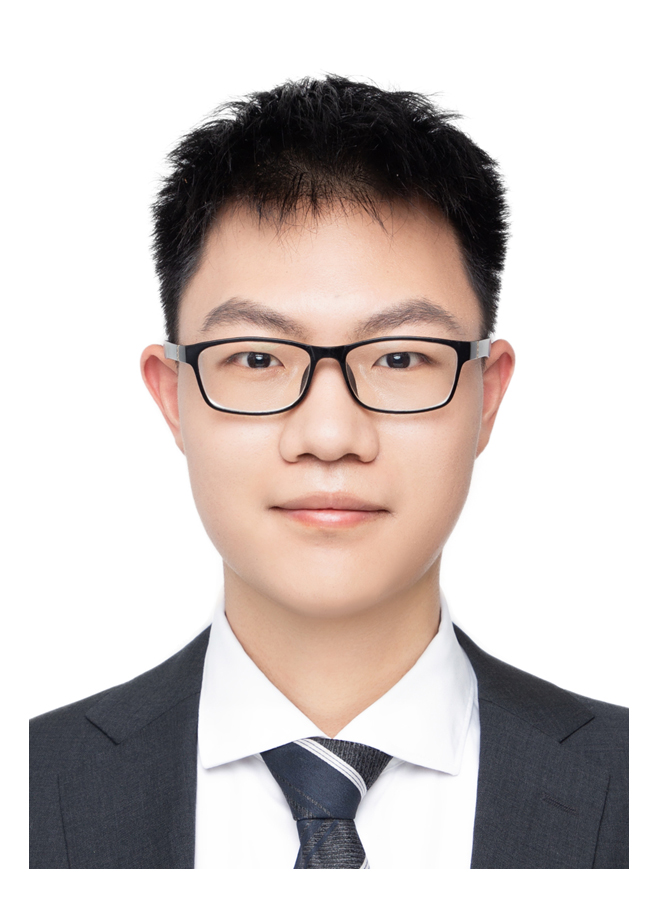 Name:Chenyu XuPosition:Master studentDuration:2024 ClassEmail:xuchy2024@shanghaitech.edu.cn
Name:Chenyu XuPosition:Master studentDuration:2024 ClassEmail:xuchy2024@shanghaitech.edu.cn -
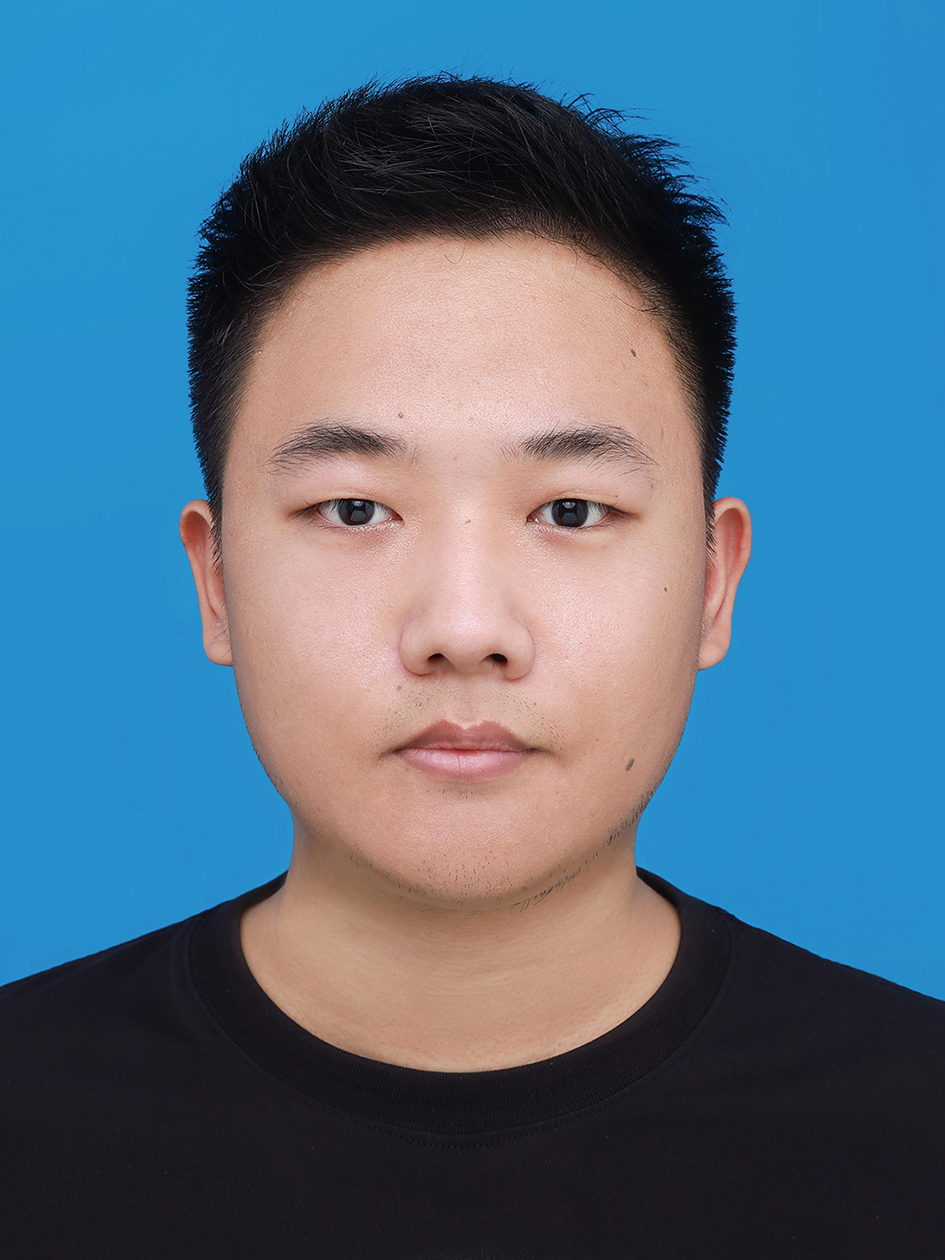 Name:Xiaoxuan JiangPosition:Master studentDuration:2024 ClassEmail:jiangxx2024@shanghaitech.edu.cn
Name:Xiaoxuan JiangPosition:Master studentDuration:2024 ClassEmail:jiangxx2024@shanghaitech.edu.cn
Our research lab, named Future Intelligent Network and Communications (FineCom) Laboratory, is established by Dr. Yijie (Lina) Mao in September, 2021. We mainly focus on the research field of wireless communication networks with emphasis on the potential key technologies for beyond 5G. Our research interests include (but not limited to):
MIMO communication systems
Transceiver design, multi-user interference management, resource allocation.Rate-splitting multiple access (RSMA)
The theory, architectures, and applications of RSMA.Artificial Intelligence-empowered wireless communication networks (AI + 6G)
The use of machine learning and deep learning to design efficient algorithms for resource allocation in wireless networks.
The use of wireless strategies for distributed learning and federated learning.Reconfigurable Intelligent Surface (RIS)
Phase-shift design, beamforming design, and channel estimation for RIS-aided wireless networks.
The interplay of RIS with emerging 6G strategies.Space-Air-Ground Integrated Network (SAGIN)
Interference management, user scheduling, and cooperative transmission design.
CS287: Network Intelligence (Spring, 2022; Autumn, 2022; Autumn, 2023)
Course Introduction
- Recent advances in artificial intelligence (AI) and machine learning (ML) has opened a new era of “intelligent wireless networks”, which pushes forward the use of AI technologies to resolve the challenges such as network planning, operation, management and troubleshooting in wireless networks. The development of intelligent wireless networks has been growing explosively and is becoming one of the biggest trends in related academic, research, and industry communities. This course is designed for postgraduate students who are working on the frontiers of wireless communication networks. This course aims at delivering a comprehensive overview of ML, and its application to deal with various problems in the physical (PHY) and medium access control (MAC) layers of communication networks such as transceiver design, channel estimation, prediction, and compression, resource allocation, semantic communications, distributed and federated learning and communications, etc.
EE150: Signals and Systems (Spring, 2023; Spring, 2024)
University Service:
Undergraduate Mentor at Dadao College
Member of the Fujian Undergraduate Admissions Promotion Team
Research Service:
Editors
IEEE Communications Surveys and Tutorials (April 2023--present)
IEEE Communication Letters (Janunary 2023--present)
IEEE Transactions on Green Communications and Networking (TGCN) special issue on Rate-Splitting Multiple Access for Future Green Communication Networks.
IEEE Journal of Selected Areas in Communications (JSAC) special issue on Rate Splitting (Multiple Access) for Future Wireless Networks.
IEEE Open Journal of the Communications Society (OJ-COMS) special issue on Rate-Splitting and Multiple Access Techniques for 6G.
Chairs
International Symposium on Wireless Commnuication Systems (ISWCS) 2024 Special Session on 'Rate-Splitting Multiple Access for 6G' (co-chaired with Prof. Bruno Clerckx).
IEEE International Conference on Communications (ICC) 2024 Workshop on 'Rate-Splitting Multiple Access for 6G' (co-chaired with Prof.Daniel Benevides da Costa, Prof. Bruno Clerckx, Prof.Zhaohui Yang).
International Conference on Wireless Communications and Signal Processing (WCSP) 2023 'Integrated Sensing, Communication and Computing Symposium' (co-chaired with Prof.Chau Yuen, Prof.Husheng Li, Prof. Husheng Li, Prof. Haixia Zhang, Prof. Xiaoming Che).
IEEE International Workshop on Signal Processing Advances in Wireless Communications (SPAWC) 2023 Special Session on 'Rate-Splitting Multiple Access for 6G' (co-chaired with Prof.Zhaohui Yang, Prof.Bruno Clerckx, and Prof.Robert Schober).
International Symposium on Wireless Communication Systems (ISWCS) 2022 Special Session on Rate-Splitting Multiple Access for 6G (co-chaired with Prof. Bruno Clerckx).
IEEE International Conference on Sensing, Communication, and Networking (SECON) 2022 Workshop on Reconfigurable Holographic and Intelligent Surfaces for Green 6G Sensing, Communication and Networking (co-chaired with Prof. Aryan Kaushik, Prof. Nan Yang, Prof. Wonjae Shin, Dr. Vasanthan Raghavan).
IEEE International Conference on Communications (ICC) 2022 Workshop on Rate-Splitting Multiple Access for 6G (co-chaired with Prof. Wonjae Shin, Prof. Seok-Hwan Park)
IEEE Wireless Communications and Networking Conference (WCNC) 2022 Workshop on Rate-Splitting and Next Generation Multiple Access (co-chaired with Prof. Bruno Clerckx, Prof. Aydin Sezgin, Prof. Wonjae Shin).
IEEE International Conference on Communications (ICC) 2021 Workshop on Rate-Splitting (Multiple Access) for 6G (co-chaired with Prof. Bruno Clerckx, Prof. Mérouane Debbah, Prof. Daniel B. da Costa, Dr. Peiying Zhu).
IEEE Wireless Communications and Networking Conference (WCNC) 2021 Workshop on Rate-Splitting (Multiple Access) for Beyond 5G (co-chaired with Prof. Bruno Clerckx, Prof. Daniel B. da Costa).
IEEE International Symposium on Personal, Indoor and Mobile Radio Communications (PIMRC) 2020 Workshop on Rate-Splitting and Robust Interference Management for Beyond 5G (co-chaired with Prof. Bruno Clerckx, Prof. Wonjae Shin, Dr. Zhaohui Yang).
IEEE International Conference on Communications (ICC) 2020 Workshop on Rate-Splitting and Robust Interference Management for Beyond 5G (co-chaired with Prof. Bruno Clerckx, Prof. Eduard Jorswieck).
Tutorials and Talks
I delivered a tutorial on 'Rate Splitting Multiple Access for 6G: Recent Advances and Future Research Trends' in Globecom 2023, Kuala Lumpur, Malaysia (together with Prof. Daniel Benevides da Costa, Prof. Bruno Clerckx, and Prof Zhaohui Yang).
I delivered a tutorial on 'Rate Splitting Multiple Acccess for 6G: Fundamentals, Applications, and Open Issues' in ICC 2023, Rome, Italy (together with Prof. Bruno Clerckx). [slides]
I delivered a tutorial on 'Rate Splitting Multiple Access for 6G' in ISWCS 2021, Berlin, Germany (together with Prof. Bruno Clerckx and Dr. Onur Dizdar). [slides]
I delivered a tutorial on Rate Splitting Multiple Access for Beyond 5G: Principles, Recent Advances, and Future Research Trends in IEEE ICC 2021, Montreal, Canada (together with Prof. Bruno Clerckx). [slides Part1] [slides Part2] [Video Part1] [Video Part2]
I delivered a tutorial on Rate Splitting Multiple Access for Beyond 5G: Principles, Recent Advances, and Future Research Trends in IEEE VTC-Spring 2021, Helsinki, Finland (together with Prof. Bruno Clerckx, Prof. Aydin Sezgin).
I delivered a tutorial on Rate Splitting Multiple Access for Beyond 5G: Principles, Recent Advances, and Future Research Trends in IEEE WCNC 2021, Nanjing, China (together with Prof. Bruno Clerckx).
I delivered a tutorial on Rate Splitting Multiple Access for 6G in IEEE PIMRC 2020 (together with Prof. Bruno Clerckx).
I am invited by IEEE ComSoc RCC Speical Interest Group (SIG) on beyond diagonal reconfigurable intelligent surface (BD-RIS) to deliver an online talk on BD-RIS.[slides and video]
I am invited by Prof. Xudong Wang to give a talk on Rate Splitting in UM-SJTU Joint Institute, Shanghai Jiao Tong University, China.
I am invited by Prof. Yifei Yuan to give a talk on Rate Splitting in China Mobile.
I am invited by Prof. Xiaozhong Xie to give a talk on Rate Splitting in the Chongqing University of Posts and Telecommunications, China.
I am invited by Prof. Aryan Kaushik to give a talk on Rate Splitting in the University of Sussex, UK.
I am invited by Prof. Ruhui Ma to give a talk on Rate Splitting in Shanghai Jiao Tong University.
I am invited by Prof. Miaowen Wen. to give an online talk on RSMA (in Mandarin).
Technical Program Committee
IEEE ICC 2021-2025
IEEE WCNC 2021-2024
IEEE Globecom 2021-2024
IEEE VTC-Fall 2023
IEEE ICCC 2023
IEEE PIMRC 2020
Book Chapter
K. Chen, Y. Mao, W. Shin, B. Clerckx, Multiple Access for Integrated Sensing and Communications, in: A. Kaushik (eds) Integrated Sensing and Communications for Future Wireless Networks: Principles, Advances and Key Enabling Technologies, Elsevier, to be published, Jan. 2024.
Y. Wang, Y. Mao, Z. Yang, Intelligent Transceiver Design for Semantic Communication, in: Y. Sun, L. Zhang, D. Niyato, M. A. Imran (eds) Wireless Semantica Communications: Concepts, Principles and Challenges, Wiley-IEEE.
Y. Mao, B. Clerckx, Multiple Access Techniques, in In: X. Lin, N. Lee (eds) 5G and Beyond , Springer, Cham.
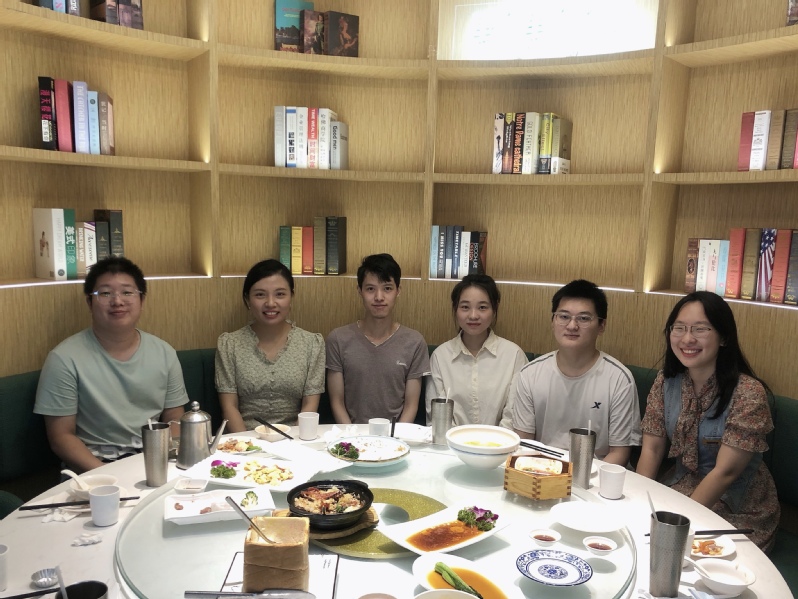
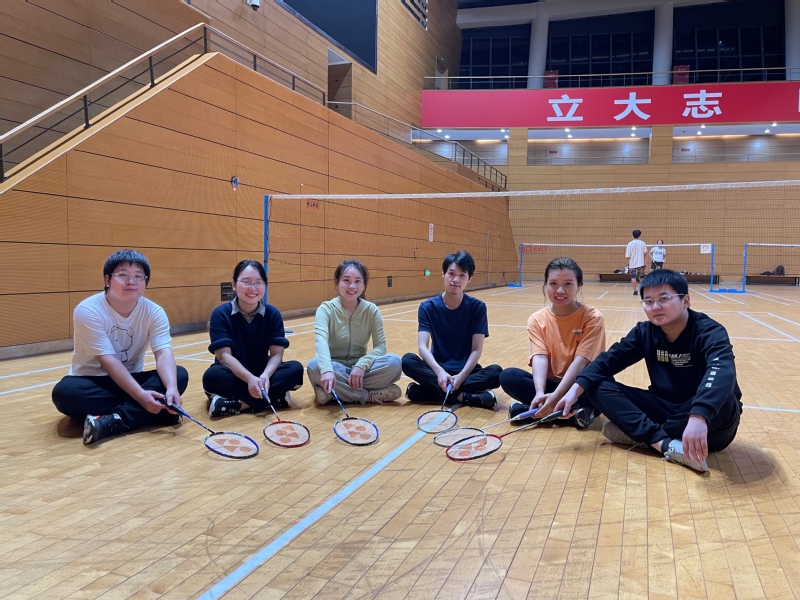
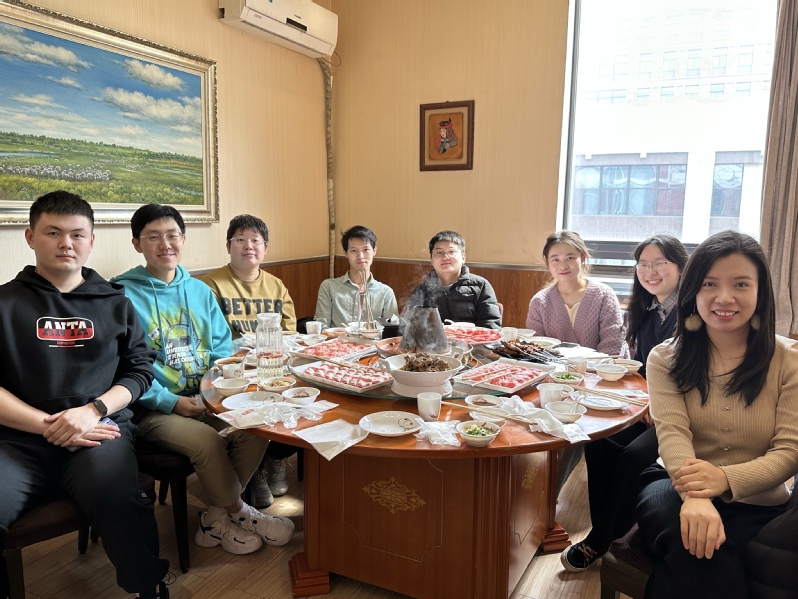





 沪公网安备 31011502006855号
沪公网安备 31011502006855号


